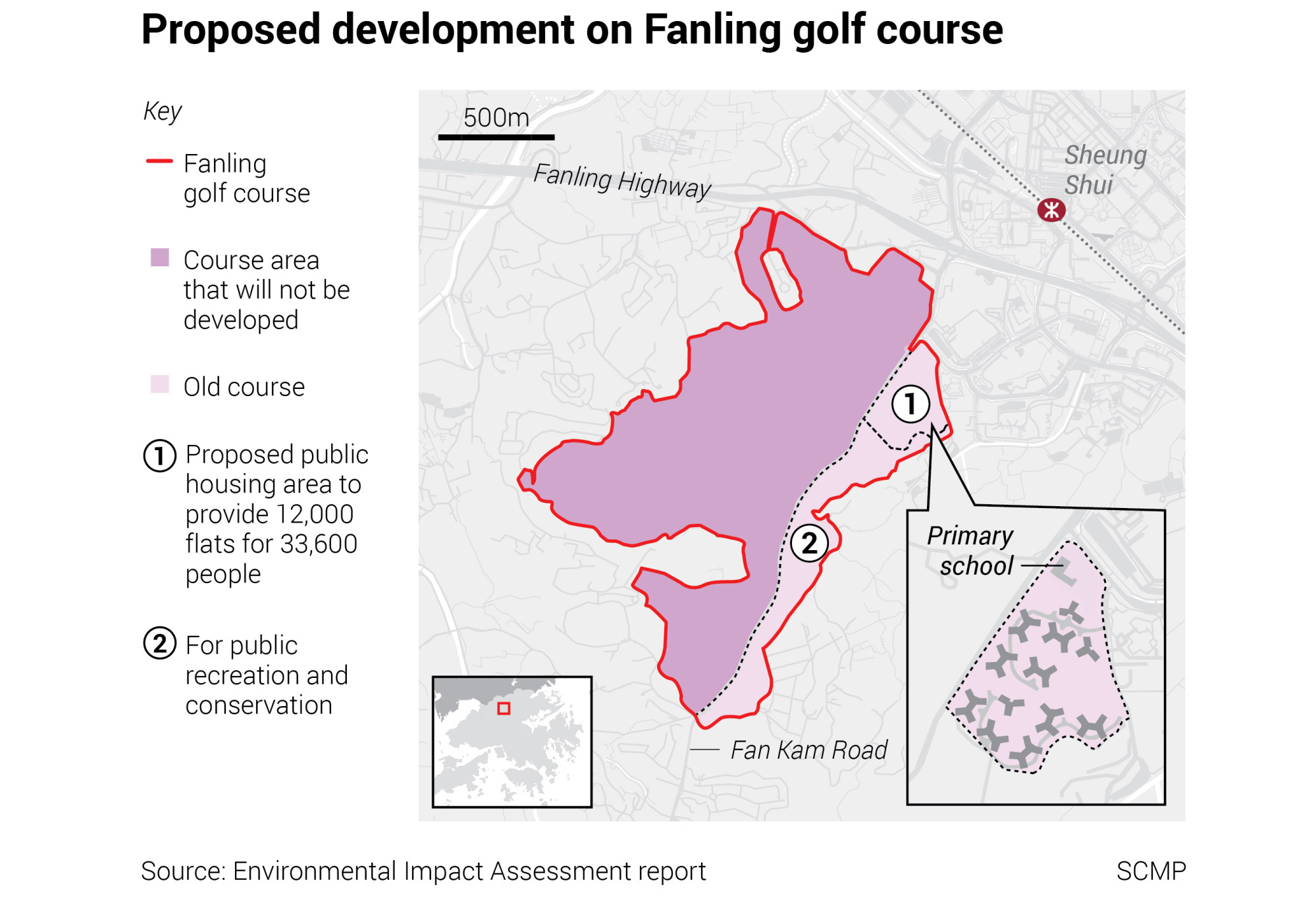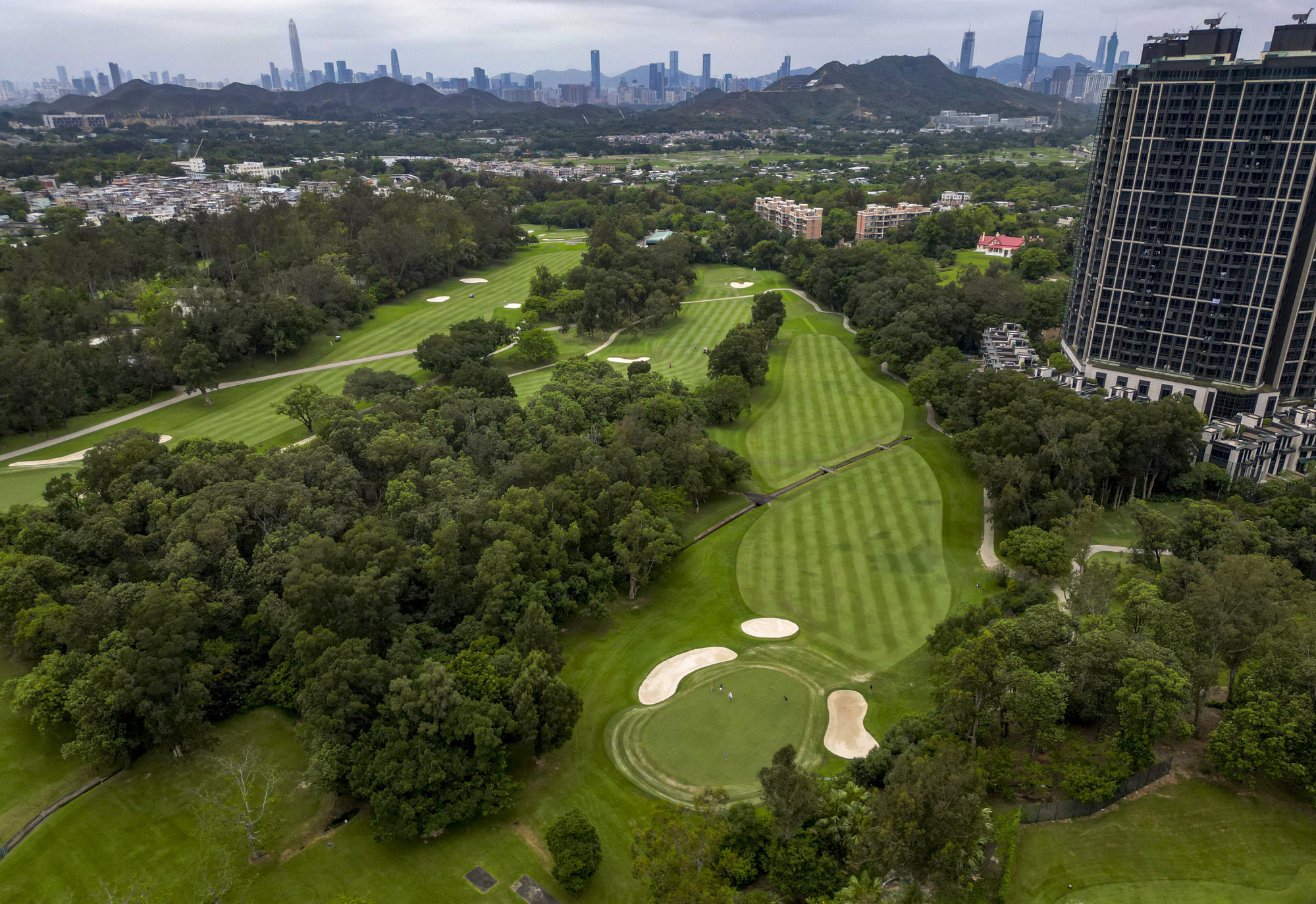
Hong Kong rural body proposes housing scheme near site of controversial golf club development
- Heung Yee Kuk chief Kenneth Lau says scheme is not a substitute for now-delayed development of 12,000 public flats at Fanling golf course
- Lau’s proposal takes up 8.5 hectares in Ping Kong Tsuen, a village with abandoned farmland and some squatter huts located next to golf course
But Heung Yee Kuk chairman Kenneth Lau Ip-keung on Tuesday denied his proposal was meant as a substitute for the nine-hectare site earmarked for building 12,000 public flats at Fanling golf course by 2029.
“It is about Hong Kong’s overall housing supply instead of projects substituting one another,” Lau said, stressing the government needed to build up its land bank for future development.
The government on Monday night said it would change the proposed use of the golf course public housing site from residential to “undetermined”, while acknowledging the project would be delayed.
A former town planning adviser called the move rare.

The authorities said they remained committed to building public flats on the site, adding the change was temporary to buy time for amending the housing layout and density to fulfil requirements from environmental authorities.
Lau’s proposal takes up 8.5 hectares in Ping Kong Tsuen, a village with abandoned farmland and some squatter huts located next to the golf course.
The plan involves constructing more than 12,000 flats in a total of nine blocks ranging from 31 to 46 floors and a low-rise building to house community facilities and a public transport interchange.
Lau said villagers had told him they did not oppose the proposal, adding that the government would need to compensate land owners if it resumed the site for development.
Hong Kong plan to build public housing on golf course set for further delay
Under the current mechanism, agricultural land taken back for development costs HK$1,267 per square foot.
Architect Julia Lau Man-kwan, who helped formulate the plan, said the proposal had an edge over the golf course scheme as the area was flat and no valuable trees required transplanting elsewhere.
“It can be implemented quicker than the Fanling golf course site,” Lau said, adding the area would require existing roads to be upgraded.

In response to Post inquiries, the Development Bureau on Tuesday night said the proposed village development involved a large amount of private land and had no road connections.
“It requires further feasibility studies but it does not seem to be land that homes can be built on in the short term,” a bureau spokeswoman said.
The Town Planning Board will hold five meetings this month for public hearings on the overall 32-hectare (79-acre) redevelopment plan involving the golf course, covering the “undetermined” site and the remaining 23 hectares designated for conservation and recreational uses.
The board earlier received more than 6,000 responses against the housing proposal, including from the Hong Kong Golf Club which leases the land for the 172-hectare Fanling course.
Once the board has reached a decision by the end of November at the latest, the government will start amending the housing proposal and submit a new plan to environmental authorities by the end of next year.

A former town planning member, who declined to be named, said the board normally required project proponents to file another round of applications for any changes.
“I have never seen anything like this during my term … I suspect the move is to avoid any legal challenges,” the ex-member said.
A source familiar with the planning process said the temporary change was “rare”, giving the public a bad impression.
“It looks like the government knows that it does not have an edge according to the comments received by the board. So it is changing the land use,” the source said, adding the move could also buy the government time to negotiate with stakeholders.
Hong Kong Golf Club shares baby owl video in bid to halt housing plan for course
Sze Lai-shan, deputy director of the Society for Community Organisation, expressed dissatisfaction with the delay and said she was worried the plan would be given up eventually.
“It has a huge impact on those waiting for public housing,” Sze said. “Every project receives opposition. Does it mean we give up on all of them?”
The Federation of Public Housing Estates remained optimistic about building flats on the golf course but stressed that the scale of the project should not fall too much.
The average waiting time for public housing was 5.3 years as of March.

